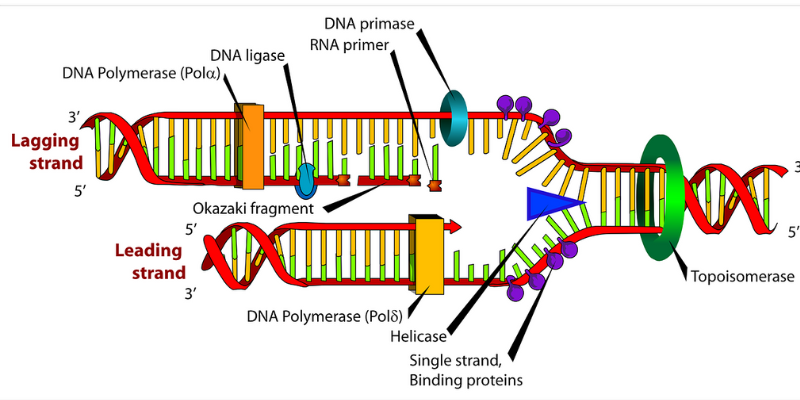Welcome to the world of bacteria – microscopic organisms that have been around for billions of years and are essential to life as we know it. But did you know that these tiny creatures are also revolutionizing modern medicine? From antibiotic production to gene therapy, researchers are discovering new ways bacteria can be used to treat a variety of diseases and improve human health. In this blog post, we’ll explore how bacteria are breaking down barriers in the medical field and changing the way we approach healthcare.
Introduction to Recombinant DNA Technology and Bacteria
Recombinant DNA technology is a powerful tool that has allowed scientists to create new strains of bacteria that are resistant to antibiotics. This technology has also been used to create bacteria that can produce human insulin and other lifesaving drugs.
Bacteria are single-celled organisms that are found in nearly every environment on Earth. They play an important role in the decomposition of organic matter and the cycling of nutrients in the environment. Some types of bacteria also cause disease in humans, animals, and plants.
In the laboratory, scientists can use recombinant DNA technology to insert new genes into bacteria. These new genes can confer resistance to antibiotics or enable the bacterium to produce a human protein such as insulin. When these genetically modified bacteria are introduced into patients, they can help fight infection or provide lifesaving treatments.
Recombinant DNA technology has revolutionized modern medicine and offers hope for many people with diseases that have no cure.
Thanks to this technology, scientists can now create bacteria that can produce novel molecules and compounds for medical research. This technology has also enabled scientists to insert genes into plants, animals, and other organisms.
Exploring the Benefits of Using Bacteria for Recombinant DNA Technology
Bacteria have been used in recombinant DNA technology for decades, and the benefits of this approach are well-established. Bacteria are easy to grow and maintain in the laboratory, and they can be genetically manipulated relatively easily. This makes them ideal candidates for creating recombinant DNA constructs.
Recombinant DNA technology allows for the introduction of new genes into existing organisms. This can be used to create organisms with desired characteristics, such as increased resistance to disease or enhanced ability to produce specific molecules. Bacteria are often used in this process because they can be easily modified and rapidly reproduce.
The use of bacteria in recombinant DNA technology has led to some major advances in medicine. For example, bacteria have been used to create vaccines against diseases such as polio and hepatitis B. Additionally, bacteria have been employed in the production of important therapeutic proteins, such as insulin and human growth hormone.
The use of bacteria in recombinant DNA technology has yielded many positive results. Bacteria are easy to work with and provide a versatile platform for creating genetically-modified organisms. The applications of this technology continue to expand, and it is likely that even more groundbreaking medical therapies will be developed in the future as a result.
Examining Different Types of Bacteria Used in Recombinant DNA Technology
Bacteria aretiny, single-celled organisms that are found in every environment on Earth. In the past, bacteria were primarily known as causes of disease. However, in recent years, scientists have learned how to harness the power of bacteria for good.
One way scientists are using bacteria is in recombinant DNA technology. This is a process where DNA from one organism is inserted into the DNA of another organism. The new organism then has the ability to make a protein that it would not otherwise be able to make.
This technology is being used to create new vaccines and medicines. For example, scientists have used recombinant DNA technology to create a vaccine for hepatitis B. This vaccine is made by taking the DNA from the hepatitis B virus and inserting it into a harmless bacterium. When this bacterium is injected into people, it causes their bodies to produce antibodies against the hepatitis B virus.
Recombinant DNA technology is also being used to create new cancer treatments. Scientists are working on ways to insert genes into cancer cells that will cause them to die. They are also working on ways to insert genes into healthy cells that will make them resistant to cancerous cells.
In the future, recombinant DNA technology may be used to create custom-made medicines. For example, if a person has a genetic mutation that makes them susceptible to a certain disease, scientists could create a medicine that targets that specific mutation.
Bacteria are playing an increasingly important role in our lives. As researchers continue to explore the possibilities of recombinant DNA technology, bacteria will be at the forefront of these developments.
Understanding the Potential Risks Associated with Bacteria Use
Bacteria are everywhere. They are in the air, in the water, and on our skin. We have evolved to live with them and, in many cases, they are beneficial to our health. However, bacteria can also cause infections and disease.
When we use bacteria for medical purposes, there is always the potential for risks. The most common risk is infection. When we introduce bacteria into our bodies, they can cause infections at the site of injection or elsewhere in the body.
Bacteria can also cause allergic reactions. Some people may be allergic to certain types of bacteria or their products. Allergic reactions can range from mild to life-threatening.
Another potential risk is resistance. Bacteria can become resistant to antibiotics and other drugs used to treat infections. This means that if you get an infection caused by a resistant bacterium, it may be more difficult to treat.
Despite these potential risks, bacteria offer great promise for treating many diseases and conditions. Researchers are working hard to develop new ways to use bacteria safely and effectively to improve our health.
How Researchers are Applying Recombinant DNA Technology to Modern Medicine
Recombinant DNA technology has revolutionized medicine, and researchers are continuing to find new ways to apply this technology to improve human health. One area where recombinant DNA technology is being used is in the development of new vaccines. Vaccines are an important tool for preventing disease, and by using recombinant DNA technology, researchers can create vaccines that are more effective and have fewer side effects.
Another area where recombinant DNA technology is being used is in the development of new treatments for cancer. Cancer is a complex disease, and current treatments often have limited success. However, by using recombinant DNA technology, researchers are developing new treatments that are more targeted and less toxic. This is an important advance in the fight against cancer, and it is hoped that this research will lead to more effective treatments for this disease.
Recombinant DNA technology is also being used to develop new diagnostic tests. Diagnostic tests are important tools for detecting diseases early, when they are most treatable. By using recombinant DNA technology, researchers can develop more sensitive and specific diagnostic tests. This is an important advance in medicine, as it can help to detect diseases earlier and allow for more effective treatment.
Recombinant DNA technology is having a major impact on modern medicine. Researchers are finding new ways to use this powerful tool to improve human health.
Conclusion
Bacteria are revolutionizing modern medicine and the possibilities for their use are almost endless. From diagnosing illnesses to creating new drugs, bacteria have a growing role in helping us understand our bodies and find better treatments. As scientists continue to explore and develop new ways of using these tiny organisms, we will undoubtedly be able to make even greater advances in healthcare. It is an exciting time for medical science and bacteria will surely play a major part in this journey towards better health.













